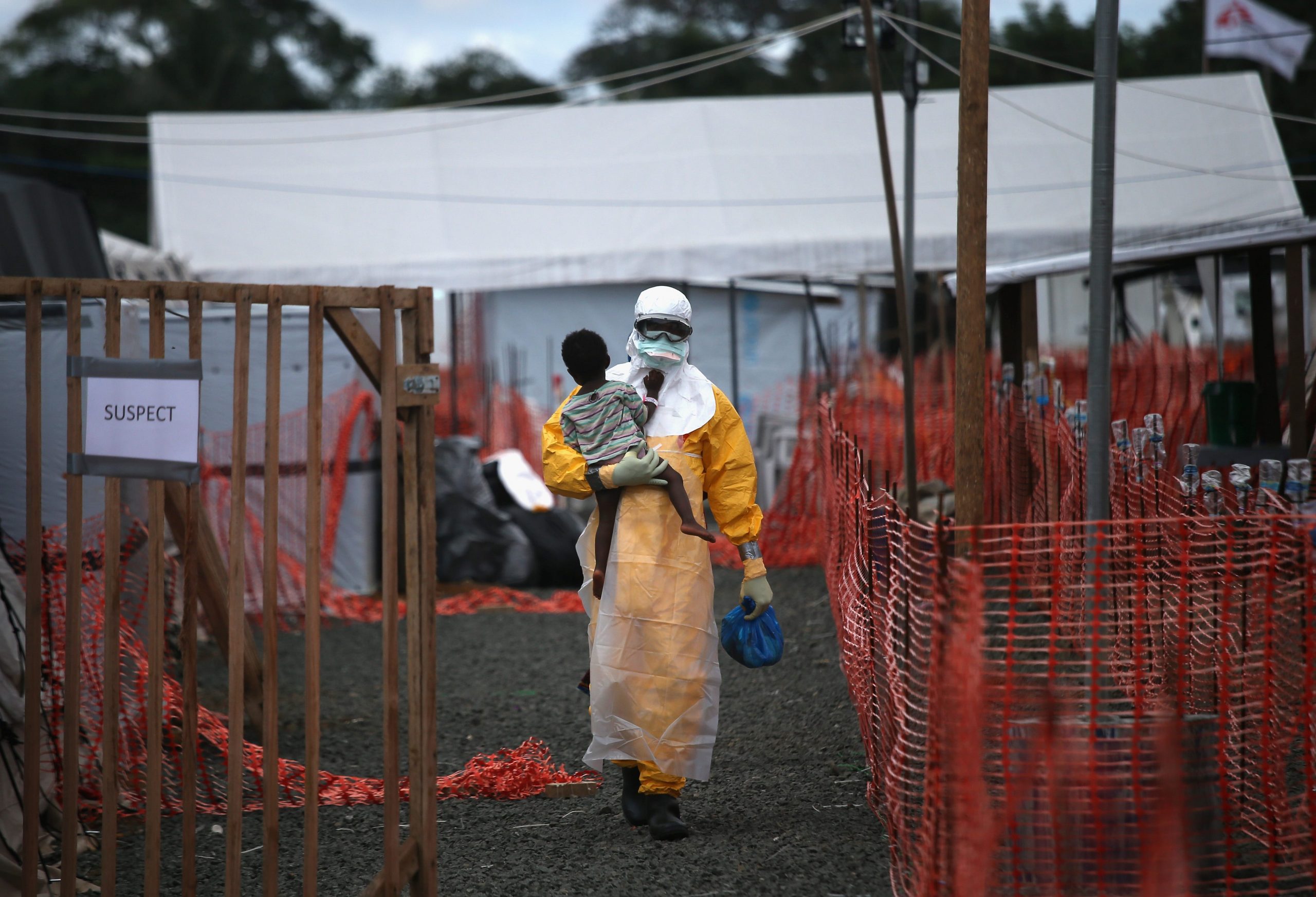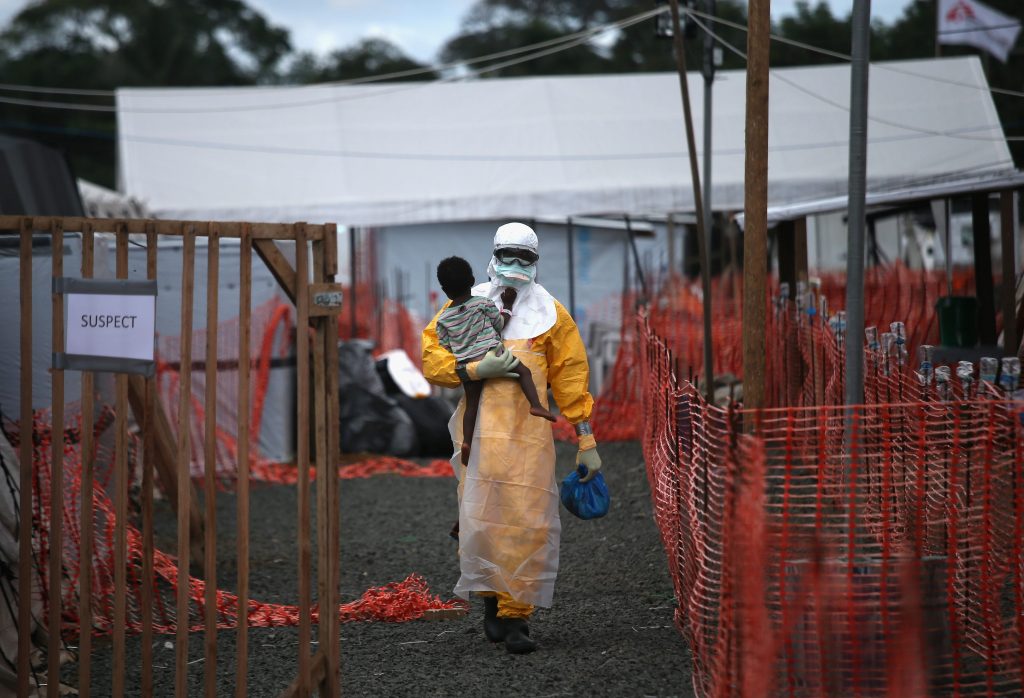
John Moore/Getty Images
- Doctors Without Borders, one of the world's most important global relief agencies, employs more than 60,000 around the world, almost all of them locals.
- In an Insider investigation in collaboration with the public radio broadcast "Reveal" has found that the group sometimes uses "profiling" to decide which workers to send on assignments, in rare cases resulting in Black and brown workers being deployed to high-risk areas that whites are kept away from.
- Doctors Without Borders says the practice is rare, and it is studying how it is used.
- Visit Insider's homepage for more stories.
Doctors Without Borders is perhaps the most famous of all international relief organizations. Known internationally by its French acronym, MSF, it has been around for nearly 50 years and employs 63,000 people from around the world. Many MSF staffers leave behind comfortable lives to tend to the sick and wounded in some of the world's most difficult settings. It is hard not to be moved by the public perception that MSF has cultivated of dashing young physicians spurning well-paying jobs in global capitals to save lives in conflict zones. MSF's tenacity helped it earn a Nobel Peace Prize in 1999 and grow into a $2 billion-a-year behemoth today.
But an Insider investigation in collaboration with the nonprofit radio show and podcast "Reveal," based on interviews with about 100 current and former staffers in nearly 30 countries and a review of thousands of pages of documents, has found that a segregated, two-tiered workplace is firmly ingrained within MSF. While a small number of international workers wield disproportionate decision-making power and enjoy plush benefits, local workers say they often feel like second-class citizens, without access to the same quality medical care, pay, and security that their international counterparts enjoy. And dozens of current and former employees say that people of color, regardless of their position within the organization, are treated unequally.
One of MSF's most sensitive practices, known as "profiling," deliberately reserves some risky deployments for Black and brown international workers.
The tactic involves sending staffers to particular places because of the way they look or where they are from, on the understanding that it is sometimes inappropriate or unsafe to place workers of certain nationalities, races, genders, or sexual orientations in some environments. For example, MSF says it doesn't send US citizens to Venezuela given political tensions between the two countries, and only sends female midwives to certain areas for "cultural or religious requirements."
MSF believes that in areas like the Sahel region of sub-Saharan Africa, where terrorist and paramilitary groups patrol the dunes and sometimes target aid workers, international staffers who look like Westerners are more likely to be harmed or kidnapped. Indeed, some rebel groups have explicitly warned Westerners to avoid the area. So MSF sends Black and brown workers – who, the group says, are "less exposed." In one internal memo obtained by Insider and "Reveal," the group says profiling protects not only white expats, but also Black expats who could be identified by the obvious presence of foreigners.
The practice has sparked anguished debate within MSF over how to ethically and safely deploy people to dangerous areas. Internal unease over profiling dates back to at least 2012, when a civil war in Mali drove refugees into northern Niger. At the time, the organization's leadership prohibited "non-black African personnel" from some projects in the area out of concern that they could be kidnapped. At one MSF board meeting at the time, a member proposed "Africanising teams working in the Sahel."
A 2012 internal report by MSF's research unit in Switzerland found that the practice was divisive among staff members and questioned how broadly it could be applied. In practice, the report said, profiling shifted risks from "Caucasian/Western staff" to nonwhite staff. "It cannot therefore be a systematic policy," the report concluded. "It should only be of limited duration."
But another internal report on profiling, from 2019, quotes an anonymous staffer at MSF headquarters saying the practice had become routine: "We have normalized this exceptional situation." Especially worrying to the authors was that most of the profiled staff members they surveyed were not fully informed of the dangerous missions they were assigned to, and "several respondents only discovered the profiled nature of the project or position" after they arrived in the country. At an MSF workshop last year in Dakar, Senegal, a staff member in West Africa described talking to African expatriates who said they "feel like cannon fodder" when sent out on missions.
In a written response to questions, an MSF representative said that "profiling is and should remain an exceptional and temporary measure linked to exceptional security circumstances" and that "most cases of profiling are the result of direct demands from armed groups or governments." But the representative added that MSF was reconsidering whether "this approach could, in some cases, create an unfair transfer of risk to certain categories of staff." Profiled staffers should always be told about the nature of their assignments so they can "make an informed decision on whether to accept the assignment or not," the representative noted, adding that there is "room for improvement" in its communications around the issue.
